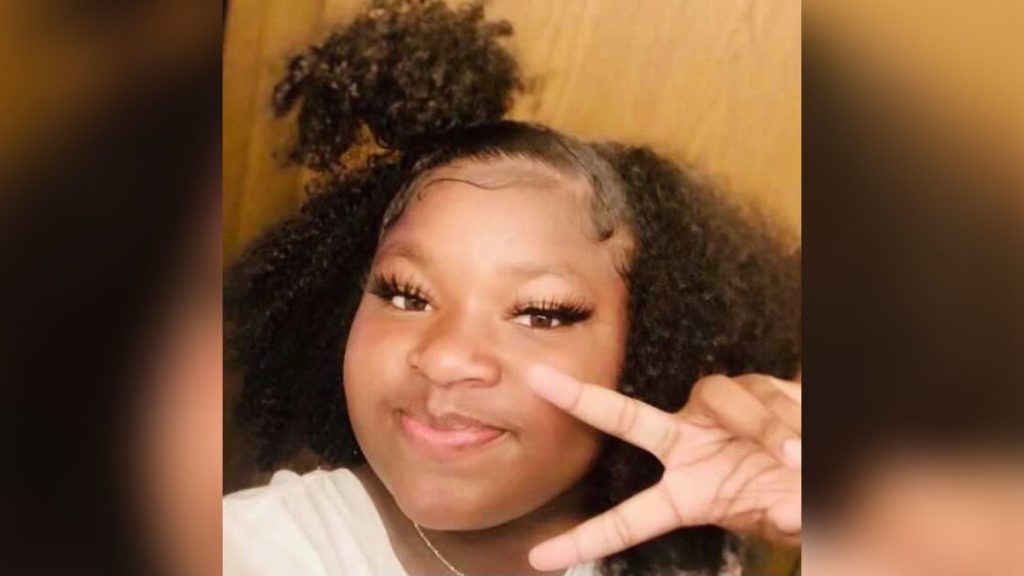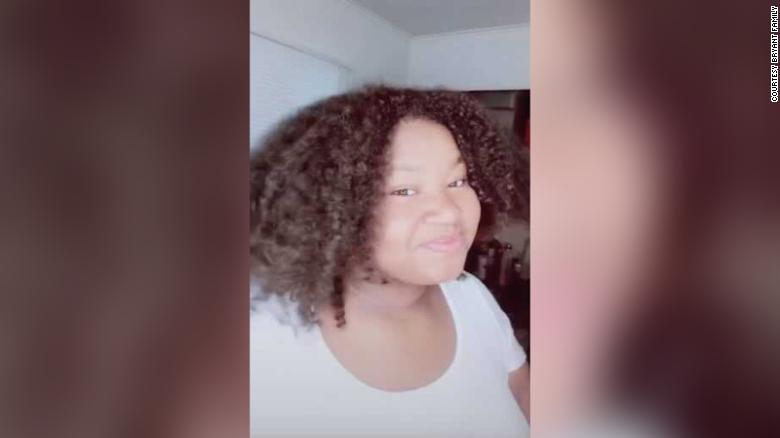Blog
Lessons from Ma’Khia Bryant’s Death: Better Housing Policy & Kinship Care Aid Can Save Our Children
This article was written by ASCI’s editorial team and originally published by the Imprint.

Dr. Sharon McDaniel, President and CEO,
A Second Chance, Inc.
Yven Destin, PhD, Charlotte Country Day School in North Carolina 
Dr. Ervin Dyer, senior editor, University of Pittsburgh Office of Communications
Sweet 16. It’s an age when many teens revel in the thought of getting a driver’s license, going to the prom or landing a first job, all sweet rites of passage that launch them into a new world of emerging independence.
For Ma’Khia Bryant, the 16-year-old Black girl who was fatally shot in April by Columbus, Ohio, police officer Nicholas Reardon, her passage that was anything but sweet.
Bryant’s turbulent life and death forces us to re-evaluate the foster care system, especially the effect of the system’s inadequate, culturally unresponsive housing policy and the disruption it can cause to our children’s sense of safety and belonging.
On a warm Tuesday evening, Bryant was with her younger sister, Janiah, who, in a bit of tragic irony, called the police to protect Bryant from “older kids” who, they say, threatened her with assault. Within seconds of arriving on the scene, Reardon encountered an agitated Bryant.
On the officer’s body camera footage, Bryant appeared to be charging at one female (toward Reardon) before turning to charge at another female while wielding a knife in her hand. At that point, Reardon shot four times, killing Bryant, after she refused his calls for her to “get down!” (presumably on the ground). In the background, a witness in disbelief shouts to Reardon, “She’s just a f****ing kid, man!” — referring to his excessive and deadly force.
Her having been a kid is one factor, but combine that with her gender, race and class position and Bryant occupied a space in America that made her particularly vulnerable, which complicates the case. She was a Black girl in America, which meant her life mattered even less than the lives of our Black men who have fallen at the hands of the police.
But Bryant didn’t only suffer the invisibility of being a Black girl; she was a Black girl caught in a failed social services system that, as the Bryant family’s attorney Michelle Martin stated, “placed her in a corner.” Her mother, Paula Bryant, has described her daughter as an honor roll student with a great sense of humor, who loved the color blue and creating TikTok videos and was kind to everyone — not the same girl who lashed out in a knife fight.
Bryant likely felt pushed to her limits, abandoned by an uncaring society. It can even be said that Bryant’s death, while unarguably preventable and tragic, was inevitable given the way social services — just as it inappropriately deals with many other Black families every day — insensitively engaged with her, her grandmother and her sister.
In fact, this family suffered a legacy of trauma through its generational encounters with an inattentive system. Paula, a single mom of five, endured a lack of social support in raising her kids; grandmother Jeanene Hammonds continued to face obstacles in keeping the family together; and Ma’Khia and her sister Janiah — who wanted nothing more than to be with their grandmother — had been experiencing a lack of social support for years.

Across the generations, the social services system has failed this family, as it relies on a model of care that favors the system over family. In Ma’Khia’s case, the system prioritized placing children with foster parents rather than relatives, a practice called kinship care, which is championed by our organization.
For 16 months, Bryant and her three younger siblings were cared for in their grandmother’s two-bedroom home after their mom lost custody due to child negligence, according to the New York Times. After a year and some months, Jeanene and her grandkids were evicted for violating the landlord’s occupancy clause, and the system deemed her care inadequate.
Despite their grandmother’s heroic efforts to keep the family together, Ohio’s Franklin County Children Services took Ma’Khia and Janiah into custody, seemingly without policies or innovations to support their grandmother in continuing to care for them. The sisters were eventually split apart.
For two years, the girls were shuttled through Ohio foster homes, being placed five times in a half-dozen different living arrangements, with each placement causing trauma that would naturally throw any child into crisis. Away from friends — and more importantly, their grandmother — it was not surprising to learn that Janiah said the following to a dispatcher that fateful afternoon of her sister’s shooting: “I want to leave this foster home. I want to leave this foster home.”
Like all Black and brown women in America, Ma’Khia Bryant stood at the center of the intersecting roads of systemic racism, sexism and classism, ignored by legal and social systems that don’t recognize the unique dilemmas and challenges Black women face at this junction — only to be left to fend for herself in virtual isolation.
Racially, Ma’Khia was impacted by her placement in the foster system, as Black youth are overrepresented in foster care. As a Black female, she joined the many Black girls who, according to the National Women’s Law Center, make up nearly half of all girls of color in the system. And she was impacted by class, since her family could not afford a stable home. She is clearly the victim of a system that seems to tear family bonds apart rather than strengthen them.
The significance of such life-saving family bonds was recognized more than a century ago by American sociologist W.E.B. Du Bois, who acknowledged that Black families need such supports because they live in a nation determined to exclude them and designate them as inferior.

“Everybody knows and the research has proven over and over and over again that the best placement for children is with their kin,” said Ronald R. Browder, president and CEO of the Ohio Federation for Health Equity and Social Justice. “But the focus has always been on foster care.”
When it comes to relatives, in many cases, it is a separate and unequal child welfare system. Racial, economic and gender inequities abound. The “apple doesn’t fall too far from the tree” pathology is alive and well, which is an attitude rooted in white supremacy culture.
When the system does keep children with those who know them, it often leans on kinship diversion — the practice of placing children brought to the attention of the child welfare system who need temporary placement with relatives, without the supports given to traditional foster care providers. This is practiced in Franklin County, Ohio, where Ma’Khia was in foster care, and is a common practice in child welfare.
The opioid crisis has started to change the complexion of this practice in some states, as more white children are landing at the front door of the child welfare system. Agency policies and new laws have been enacted in recent years based on this changing demographic.
Yet, Ma’Khia’s grandmother received limited supports to care for her grandchildren amid both a family crisis and a global crisis. The significant and, ultimately, fatal implications of systemic unaccountability on all levels should be assessed to ensure new policy recommendations are raised to address situations such as Bryant’s.
Title IV-E funding is designed to benefit youth and their families and pays a portion of foster care maintenance costs (i.e., room, board and transportation to visit parents and siblings). As we have leverage in adjusting the stipend-based level of need, a consideration must be made in developing a structure that includes housing as a level of need.
Furthermore, as states can now utilize Title IV-E funds for prevention services like supportive housing, clear federal guidance should be made available to states to provide families assistance directly by using its federal Title IV-E funds for housing supports.
For the Bryant family and many families of color like them, the invisibility of their Blackness and the racialized, gendered and divisive practices of child removals and/or underinvestment into kinship families is known and widely tolerated in jurisdiction after jurisdiction. Bryant’s grandmother wasn’t unfit to care for her kin; rather, she was underserved by the child welfare system and then blamed when this underinvestment caused her to lose her housing.
“Bryant’s grandmother wasn’t unfit to care for her kin; rather, she was underserved by the child welfare system and then blamed when this underinvestment caused her to lose her housing.”
Had Franklin County Children Services focused on families — especially Black families through an intersectional lens — the agency would have prioritized creating a stable, safe place for Bryant and her sisters, who would have greatly benefited from a more efficient coordination of housing services than what they received.
No child — including Ma’Khia Bryant — deserves to die. Now, at what should have been an age of promise and opportunity, she’s gone. She’s a victim not only of a police officer’s bullet, but also of a negligent social system, which needs to grapple with strengthening its housing policies to better support kinship families and ensure youth achieve the belonging and stability that propel them into Sweet 16 and beyond.